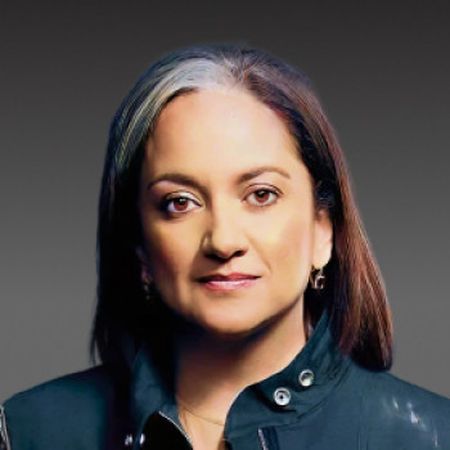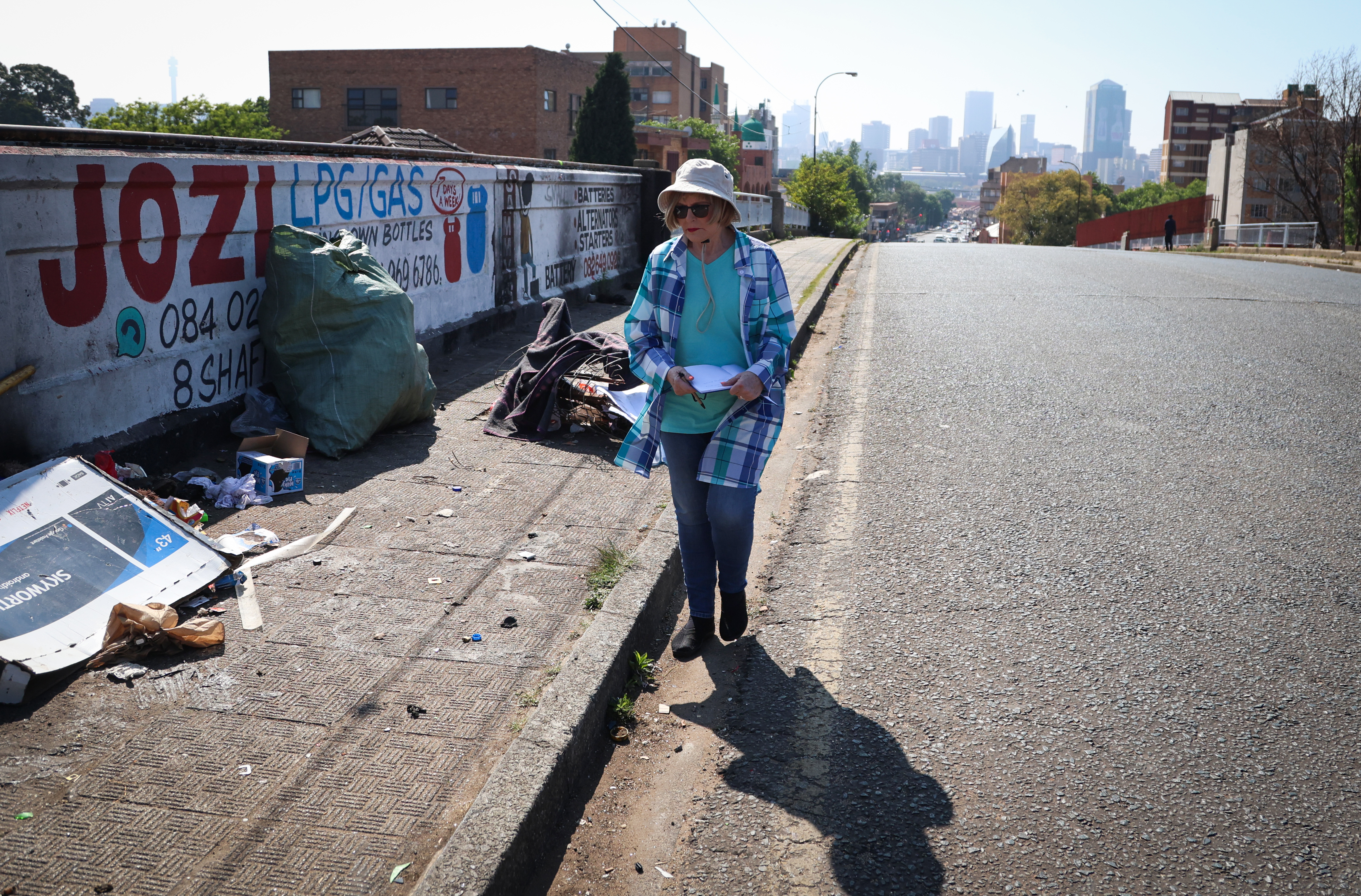Internal Democratic Alliance (DA) polls put the political party at 37% support in Johannesburg, outstripping the ANC, currently at 31%. This was in late August, before Helen Zille made the cut as the party’s candidate mayor for Johannesburg.
During the 10 days since the mayoral candidacy announcement in Soweto on 20 September, she has done 52 in-person and virtual interviews, which her media team says has reached an audience of more than 40 million people.
The ANC polled at 33.6% in the 2021 local election; the DA polled at 26.47%.
Zille’s juggernaut campaign is attracting both acclaim and criticism (read Zukiswa Pikoli here and Mondli Makhanya here, for example).
“A large number of people from all kinds of backgrounds, locally and abroad, have approached me and said, ‘How can we help?’. In a campaign, there are very few specialised things you have to do: canvassing, [voter] registration and getting the vote out,” said Zille.
“But many people who are approaching us are professionals. They are forensic auditors, engineers, accountants. You can’t utilise those skills in an election campaign, but you can certainly use them in, for example, getting a team of engineers who can, for example, look at the bridges and tell you exactly what the problem is with the bridges.”
Read more: ‘From Dada to Gogo’ – DA announces Helen Zille as party’s candidate for Joburg mayor
/file/dailymaverick/wp-content/uploads/2025/10/WFD_2794.jpg)
In previous interviews, Zille has said South Africa is in its coalition era and no party will win a majority again. Asked if that theory held in Johannesburg too, she said the party was aiming for a majority, but said it was “rare and unrealistic”.
“You don’t know what the voters are going to decide. An overall majority is rare in a proportional representation system. Coalitions are very complex and difficult to manage.
“If the voters decide again to split their votes amongst a whole slew of tiny parties, then they’re going to find themselves with a very unstable coalition.”
She would not say what the party is currently polling at, but said it was higher than the ANC and the DA is still building out its sample. (Daily Maverick got the numbers elsewhere.)
Zille’s priorities
Zille attended a Daily Maverick walkabout interview of an inner-city area where the Queens Road bridge into Fordsburg is near breaking. It carries a big traffic load from township to town. People live in holes in the bridge or on it and it is shattered like much of Johannesburg’s public infrastructure.
The walk was to assess real-life priorities for the city with the DA candidate. Zille said a specialised unit of the metro police (the JMPD) could be used to protect infrastructure – a Johannesburg Roads Agency visual assessment recently found that more than 80% of the city’s bridges are in the red zone, in danger of collapse.
Over the bridge, young nyaope addicts, who live in the area to be near opportunities to get food or money for small jobs, shot up in full view of the candidate mayor. Youth homelessness and drugs are among Johannesburg’s biggest social justice wounds.
/file/dailymaverick/wp-content/uploads/2025/10/WFD_2780.jpg)
/file/dailymaverick/wp-content/uploads/2025/10/WFD_2673.jpg)
/file/dailymaverick/wp-content/uploads/2025/10/WFD_2644.jpg)
/file/dailymaverick/wp-content/uploads/2025/10/WFD_2364.jpg)
/file/dailymaverick/wp-content/uploads/2025/10/WFD_2270.jpg)
“What we did in Cape Town, when we had a massive problem with tik, we used the matrix model from the United States, which was very good at dealing with methamphetamine addiction [crystal meth – tik].
“We started 25 outpatient rehabilitation clinics in Cape Town, which were very successful. And the city and the University of Cape Town, and the other universities, started addiction specialist courses to train people to put into those clinics.
“But you know there’s no way that local government can solve all the social problems of broken families, of absent fathers, of generational drug addiction,” said Zille.
From the bridge, we travelled to a reservoir in construction in Brixton, part of the city’s waterless line of areas where Day Zero is a constant – it stretches to Coronationville, Westbury and Claremont, where water protests are regular and the taps are dry. The reservoir is well managed, but late to completion because contractors have not been paid.
/file/dailymaverick/wp-content/uploads/2025/10/WFD_2611.jpg)
/file/dailymaverick/wp-content/uploads/2025/10/WFD_2553.jpg)
/file/dailymaverick/wp-content/uploads/2025/10/WFD_2501.jpg)
/file/dailymaverick/wp-content/uploads/2025/10/WFD_2357.jpg)
Read more: Joburg’s water infrastructure – a picture of decline and underinvestment
“Water is the number one priority. You can live without electricity, though inconvenient, but you can’t live without water. Delivering clean, drinking water is the primary responsibility of a municipality – for drinking, cooking, washing, for all daily necessities,” said Zille.
“In Cape Town, during Day Zero (the campaign to scare the city into changing its relationship with water), people knew there wasn’t water. In Joburg, 46% of water is lost – as much water as Tshwane uses every day.
“It’s extraordinary. When the city fails to do its job, it’s very hard to tell residents to save water. When people don’t even have water, you can’t ask them to reduce consumption.”
Read more: Residents from Johannesburg’s Ground Zero of failure protest at council meeting
Johannesburg spends almost 40% of its R89-billion budget on staff and another big chunk on contracting out work through tenders to do the work people are employed to do. It crowds out investment in infrastructure, now at a backlog so big you can’t count the zeros in the number any longer.
“The bloated administration is very much on my agenda. But cuts shouldn’t be at frontline delivery. You don’t cut depot workers. You cut bloated middle and upper management where [party] cadres are placed.”
/file/dailymaverick/wp-content/uploads/2025/10/WFD_2304.jpg)
/file/dailymaverick/wp-content/uploads/2025/10/WFD_2729.jpg)
/file/dailymaverick/wp-content/uploads/2025/10/WFD_2697.jpg)
/file/dailymaverick/wp-content/uploads/2025/10/WFD_2681.jpg)
The genocide question
In her early campaign, Zille has taken flak for calling genocide in Palestine a “big word”. Support for Palestine is widespread in the city and on the walkabout from the bridge to Fietas and to the reservoir, graffiti supporting Palestine and criticising Israel was daubed on all public walls.
At first, Zille did not want to engage the question. It’s a local campaign, she said, but for many Johannesburg voters, and not only Muslim ones, Palestinian rights are a make-or-break. We prodded.
“The DA has always supported statehood for Palestine – we support a two-state solution. The best option was in 2000 when Ehud Barak was Prime Minister of Israel. That was the most viable offer.
“Now we have a peace plan on the table, a 20-point peace plan on the table that I understand Israel and most of the Arab world has accepted. Now we wait to see if Hamas is going to accept it.
“I think it offers the most viable path to ending the terrible bloodshed and killing of people in Gaza, and around that area. We obviously are appalled by the extent of the killing of people in Gaza and around that area.”
(The peace plan engineered by the US, with former UK prime minister Tony Blair in the driver’s seat, has been tepidly received and largely excludes Palestinians in its architecture.)
Zille has a leg in each city: Cape Town and Johannesburg. Commitments keep her in both. In December, she will have a holiday with her family and then make the move to Johannesburg in the new year to campaign in the race that will be the one to watch in an election year. DM
This story has been updated to reflect the difference between a majority and an overall majority.
Daily Maverick’s full interview with Helen Zille will be published next week.





 Helen Zille the Johannesburg mayoral candidate of the Democratic Alliance inspects the queens road bridge in fordsburg on 01 October 2025. (Photo: Felix Dlangamandla)
Helen Zille the Johannesburg mayoral candidate of the Democratic Alliance inspects the queens road bridge in fordsburg on 01 October 2025. (Photo: Felix Dlangamandla)